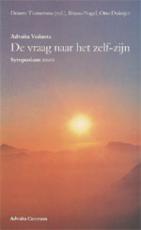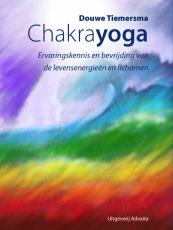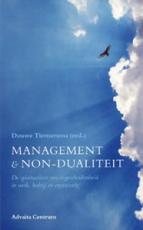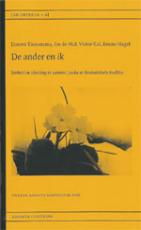Advaita Post 11-15 - This is my sphere of infinite relaxed consciousness
Volume 11 No 15 (October 3, 2010)
--- This is my sphere of infinite relaxed consciousness ---
Almost beyond the end.
[The original caption, "Schier voorbij het einde", is a play on words where "Schier" means "almost" but also refers to Schiermonnikoog where Douwe holds retreats and where this picture was taken.]
Self Meditation, Part 4
From a talk in Gouda on May 12, 2010
The coinciding of relaxation and wakefulness
I would like to hear more about the relationship between concentration and relaxation. There is wakefulness and I associate that with a rational focus. If that's not there, I become sleepy, which is certainly pleasant. But neither one brings me very much.
That you have gotten to know these situations is positive. But you also need to look further. We are talking now about another area of self-being which you discover when you relax and consciously withdraw into yourself. You have slowly recognized that the situation on the mental level is a very limited state, "I think this" and "I think that". It has strong limitations, because you can only think about very specific things. But when you withdraw further into yourself as consciousness, you notice very quickly that you bypass the mental. You notice it only because you can already be aware of the mental processes with their limitations and errors. This indicates that you are already at a higher level of insight. The turning into yourself of self-meditation, let's call it: the vertical development, then continues further towards a waking consciousness that is free of the limitations of thought.
Does it matter whether I relax first?
The wakefulness will be there as a relaxation. In the "I think" and "I perceive everything" there is a pattern of tension and structures. The transition towards wakefulness means a relaxation from these patterns of tension. Through that you don't have to sink into an unconscious sleep. You can just remain alert, while the relaxation arises.
That's the main thing. With relaxation the temptation to fall asleep is very great.
Yes, that's the case for people who persist in taking the rational-mental situation for granted, and otherwise know only sleep.
Just start from your mental approach in which you are aware of your surroundings and yourself. Confirm that there is a great presence of mind. Within it you notice that you become more aware, as you relax into it and clarity of mind remains. In relaxation all kinds of restrictions on your consciousness disappear. So, as you release the tension of observation and rational thought, you notice that your consciousness opens in all directions, horizontally as well as vertically. A very wide view arises, a higher insight. There is, again also through relaxation, a higher intensity of awareness.
Could it also be that you can taste it? I taste it as a kind of sweetness, very intense ... Actually it can't be defined.
Yes, you can taste it; you can touch it. That intensity has a sensuous concreteness. It can be a taste, but also a touch, a very clear sight of the flickering light of diamonds and a hearing of the sound of crystal bells. It varies. But the being-experience must be that concrete, because otherwise due to its vagueness it will not be completely worked through, and you notice that it easily disappears. So let yourself relax there and stay with yourself as awareness, remaining aware of the quality of the clarity of your consciousness. You rediscover yourself there as freedom and openness.
When I tumble into sleep it's actually an escape, while in clarity I see the rational attention evaporate.
The clear space becomes infinitely large. The shapes and qualities dissolve more and more within it. It becomes more empty. The things that still arise are like clouds that are just there and then dissolve. Where do they dissolve? In the space of your own pure being-awareness. The consciousness becomes purer to the extent that it is less imbued with restrictive qualities. In Tibetan Buddhism this pure consciousness is called rigpa. Then it is indicated by the blue sky. But, you are that. So it's not about looking at the blue sky. No, you yourself are the open sphere where a little cloud may appear occasionally. This purity of self-consciousness has no concentration anywhere. Every limited form of 'I' is absorbed into this Great. You will confirm that yourself, from yourself as consciousness. Then you let that image go, because every image can easily become an obstacle. The image of blue sky that you make a representation of and say, "Now I know what my original mind is". No, be careful about that kind of image. See for yourself and recognize: this is my sphere of relaxed infinite consciousness, about which I can say nothing other than that it is openness, infinite and without separations.
A hearty greeting to all,
Douwe Tiemersma
Er is geen tweeheid
als je ontspannen bent
in zelf-bewustzijn
is dat duidelijk.
Boeken
Douwe schreef en redigeerde gedurende zijn leven boeken. Via onze uitgeverij zijn deze nog verkrijgbaar.



